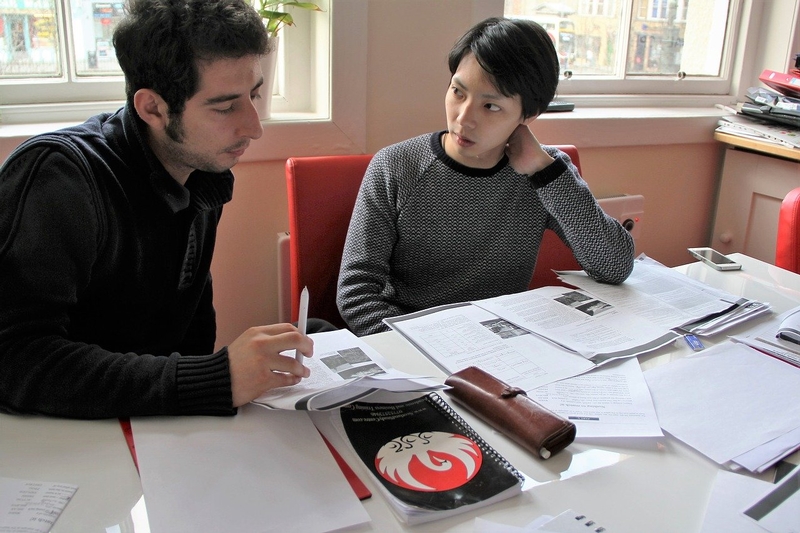
Is TEFL for me?
Many prospective teachers have asked me about how to find teaching jobs online and face to face. First of all, there are plenty of people who would tell you that being in the right place at the right time or ‘it’s not what you know, but who you know’, are still the best ways to find a job. However, with the rise in online learning, many potential employers may look for you through advertising websites or social media. These employers may require more formal qualifications – the higher the qualification and experience the higher the pay.
When I started teaching English in martial-law Poland back in the 80s, I was lucky enough to have queues of learners clamouring for lessons. I was like a rock star and did not need to have any qualifications, such was the demand. Luckily, I had taken an intro to TEFL course before I went and had some grounding in the rudiments of grammar. These days, it is not so easy to just start teaching in most northern EU countries anymore as most school leavers have at least a C1 level and in some cases even taken to opening English schools themselves in other countries. A case in point is EF, probably the largest language school chain in the world, which is a Swedish company.
However, in some parts of the world, especially ‘smaller’ cities in China, e.g fewer than 10 million inhabitants, people may stop you on the street and ask you to teach English to their two-year-old, barely out of nappies. The two-year-old, not you. In China, it is assumed that anyone non-Chinese looking can speak English and on my travels there I met plenty of Non-Native Speakers of English doing very well in places like Chenzhou, Urumiqi, Nanning, Wenzhou and Zhenzhou.
If you have no qualifications in teaching at all, you may want to consider a short intro. to TEFL course, that will give you the rudiments of what and how to teach, if not where (that’s where TEFLhub can help). The advantage of such courses is that they are quite short and many can be done online, the disadvantage is that they may offer no Teaching Practice (TP) and may not be recognised by more established schools, colleges and universities. In a few cases these courses are scams and though they may appear cheap in comparison to more accredited and expensive courses, you will end up losing your money and getting little to nothing in return. The Ukrainian saying: ‘I’m not rich enough to buy cheap things’ is quite apposite here.
The universal standard for all teachers starting out, at least from an EU perspective, is the Cambridge CELTA (Certificate for English Language Teaching to Adults). There are also certificates for teaching younger learners CERT-P (Primary) and CERT-S (Secondary). Alternatively, there is the Trinity CertTESOL and The Teaching Young Learners Extension Certificate (TYLEC). It is possible to take intensive and extensive teacher training courses in larger cities all around the world including TP; however, the amount of study and practice involved requires a good degree of motivation and time, not to mention the fees: At the time of writing, the CELTA costs $2795, paid in advance of taking the course. You also need a degree in order to apply or, if you are not a native speaker of English, at least a C2 level exam to prove that your English is good enough, in addition to a degree in a related subject.
After the CELTA, there is the DELTA (Diploma for English Language Teaching to Adults, or Dip. RSA) for more experienced teachers who may want to find employment in universities or schools that recognise this so-called ‘TEFL-Q’ (higher-qualified teachers are more prestigious for schools recognised by accrediting bodies like the British Council ). These qualifications are better for finding higher paid and more permanent positions, usually Director of Studies (DoS) posts, which require a lot more involvement in recruitment, management and training of teaching teams as well as administration of students’ day to day needs.
A PGCE or Masters Degree in a related field can support entry into Academia, especially in UK and northern-European institutions, though the competition there is fierce, especially for year round pre-sessional and in-sessional EAP (English for Academic Purposes) contracts. There are better chances of finding such work in non-UK contexts where native speakers are thin on the ground. Finally, a Ph.D. in a related subject may help, especially in moving up a university pay scale, but this qualification takes a lot of time and money and usually involves very specific research into areas of linguistics, e.g. Second Language Acquisition, that may be far too focussed for anyone just looking for a simple teaching job to fund their travels around the world. Some schools may also be quite daunted by highly-qualified staff as they may be better qualified than the management and senior teachers of the school or command a higher fee. The old adage of being over-qualified rings true here. If you’re thinking of taking a Ph.D. , try rocket science instead, it’s much more lucrative and less stressful.
Initial reading that can really help you decide if TEFL is for you is: Lightbown, P. and Spada, N. (2013) How Languages are Learned: OUP; Swan, M. (2017) Practical English Usage: OUP and Swan, M.& Smith, B. [Eds.] (2001), Learner English: CUP. As I said at the start though, it all depends on who you know and where you are. I believe that you aren’t given luck, you have to go out and find it. The world awaits.
By Bazakbal
Image by annemcdon from Pixabay.com
Return to blog